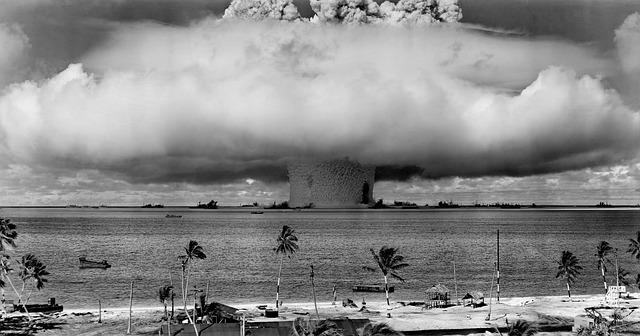Unveiling the 1950 San Francisco Biological Warfare Experiment: A Hidden Chapter of Cold War History
Secret Military Biological Tests in San Francisco: An Overview
In the early months of 1950, the United States military executed a clandestine biological warfare experiment over San Francisco, unbeknownst to its residents. This covert operation involved dispersing Serratia marcescens, a bacterium then considered relatively benign, into the city’s airspace. The primary goal was to analyze how biological agents might spread in a densely populated urban environment, providing strategic data for potential wartime scenarios. However, the entire procedure was conducted without public notification or consent, leaving the local population vulnerable to unknown health risks.
Subsequent investigations have revealed troubling facets of this secret test, including:
- Complete absence of informed consent or warnings to San Francisco inhabitants.
- Unexpected infections, particularly among hospitalized patients, linked to the bacterium.
- Internal military documents noting several unexplained illnesses and at least one death possibly connected to the experiment.
| Year | Biological Agent | Location | Reported Outcomes |
|---|---|---|---|
| 1950 | Serratia marcescens | San Francisco, California | Infections and one suspected fatality |
While military officials justified the tests as essential for national defense preparedness, the ethical implications of exposing civilians to biological agents without their knowledge remain deeply contentious. This episode has reignited discussions about government transparency and the moral obligations of defense programs when public health is at stake.
Assessing the Health and Environmental Fallout on San Francisco’s Population
Following the covert release of bacteria over San Francisco, medical records from the period indicate a notable surge in respiratory ailments, including pneumonia and bronchitis, particularly among vulnerable groups such as children, the elderly, and hospitalized patients. These unexplained health anomalies coincided with the timing of the military’s secret operation, raising concerns about the direct impact of the biological agents on public health.
Environmental studies conducted decades later have detected residual traces of the bacterial strains in local soil and water sources, suggesting that the ecological effects of the experiment may have persisted far beyond the initial release. These findings have prompted calls for ongoing environmental monitoring and remediation efforts to address potential long-term contamination.
| Category | Findings | Current Status |
|---|---|---|
| Public Health | Increased respiratory infections post-exposure | Continued health surveillance recommended |
| Soil Quality | Persistent bacterial residues detected | Limited localized cleanup efforts |
| Water Systems | Biological agents found in select reservoirs | Ongoing periodic assessments |
Health experts and environmental advocates stress the importance of sustained monitoring and community health screenings to mitigate any lingering risks. Grassroots organizations continue to push for comprehensive environmental restoration and transparent communication regarding the experiment’s legacy.
Government Concealment and Ethical Dilemmas Surrounding the Experiment
The 1950 biological test over San Francisco exemplifies a profound breach of governmental transparency. For decades, the military withheld critical information about the nature and scope of the operation, leaving millions of residents uninformed and unprotected. Declassified documents later exposed deliberate efforts to suppress details, fueling public distrust and skepticism toward official statements on biosecurity and public health.
This secretive approach raises significant ethical questions, particularly regarding the balance between national security and individual rights. The experiment violated emerging bioethical standards by:
- Exposing civilians to biological agents without their knowledge or consent.
- Failing to disclose potential risks or provide adequate warnings.
- Neglecting to conduct thorough post-exposure health evaluations or offer medical support to affected individuals.
| Ethical Aspect | Issue | Consequences |
|---|---|---|
| Secrecy | Information suppression | Heightened public fear and mistrust |
| Informed Consent | Nonexistent during testing | Violation of personal autonomy |
| Health Oversight | Absence of follow-up care | Potential chronic health issues |
Demanding Openness and Enhanced Biosecurity Protocols
The disclosure of the military’s covert biological testing has sparked widespread public outrage and calls for accountability. Advocates, scientists, and policymakers are urging government agencies to fully disclose all records related to the experiment and to conduct comprehensive health impact studies on the affected populations. The primary demands include:
- Complete transparency through the release of all pertinent documents.
- Extensive epidemiological research to assess long-term health effects.
- Strengthening biosecurity regulations to prevent unauthorized or secretive biological testing in the future.
In response, legislative initiatives have been introduced to bolster biosecurity frameworks, particularly in urban environments. Proposed measures emphasize mandatory risk assessments, improved containment standards, and public oversight to ensure ethical compliance in biological research and defense activities.
| Policy Initiative | Description | Anticipated Benefit |
|---|---|---|
| Transparency Legislation | Requires public access to biological testing records | Rebuilds public trust and informed consent |
| Biosecurity Strengthening | Enhances safety protocols for labs and field tests | Minimizes accidental exposures |
| Health Surveillance Program | Implements long-term monitoring of exposed communities | Early detection and mitigation of health issues |
Conclusion: Lessons from a Hidden Experiment
The revelation of the 1950 secret biological warfare test over San Francisco exposes a troubling episode in U.S. history, highlighting the tension between national security imperatives and ethical governance. As ongoing research continues to evaluate the full scope of health and environmental impacts, this case underscores the critical need for transparency, accountability, and stringent bioethical standards in government-led defense initiatives. The San Francisco community’s experience serves as a powerful reminder that public safety and informed consent must remain paramount in any future biological research or testing.




